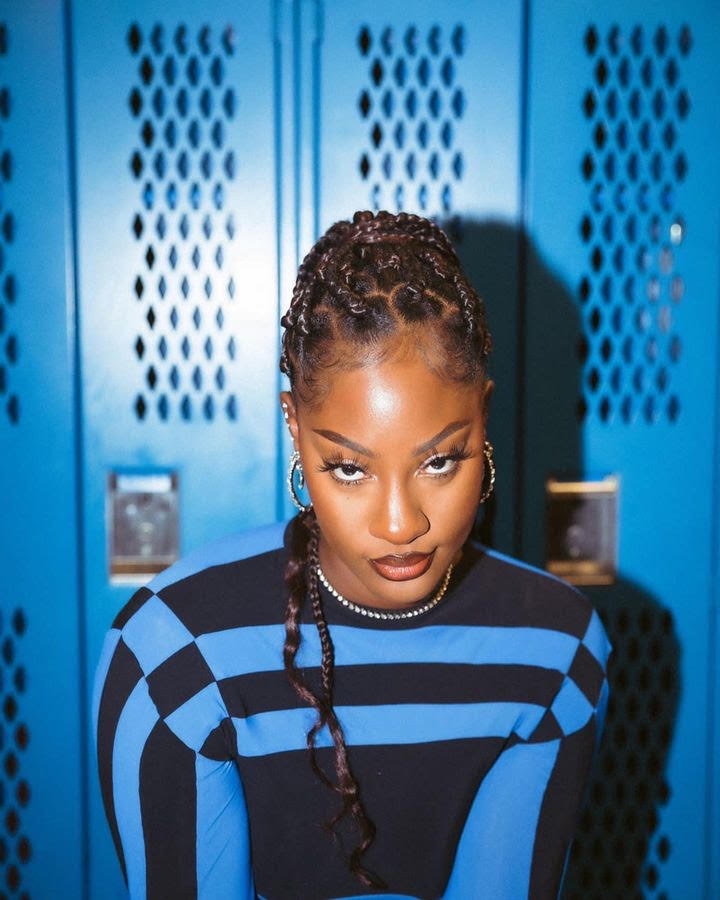The Latin music landscape is undergoing a bigger transformation where women are not only stepping into the spotlight, but also reshaping the industry through leadership, innovation and a commitment to diversity and inclusion. This was demonstrated by top female executives and industry members at the Wonder Women of Latin Music panel, which kicked off the Latin Alternative Music Conference (LAMC) on Wednesday (July 10) morning in New York.
Moderated by Billboard‘s Griselda Flores, the panel featured Kemelly Figueroa-Mouriz of Loud And Live, Yasmin Muller of Spotify, Fabi Kulick of Live Nation, Rocio Guerrero of Amazon Music, Isabel Paz of the Latin Recording Academy, Gabriela Urquiza of GlamRock Agency and Celia Saez of The Orchard, all female Latin music wonders who took to the microphones at the InterContinental Hotel for a candid conversation about why female solidarity and representation is critical in the music industry.
“Having female leadership has been crucial for my professional development, because we understand each other and know the challenges we face, such as the glass ceiling,” said Saez of The Orchard, for example.
Here are some of the best and most memorable quotes from the Wonder Women of Latin Music panel at LAMC 2024:
Kemelly Figueroa-Mouriz of Loud And Live on diversity initiatives: “I have a lot of experience in mentorship. I think that has forced me to go outside of my circle and find the solution to allocating voices. Going outside and seeking them has been so amazing — seeing that support, and receiving that support. I think it’s important to see that not only are we all here together to have the conversation but also to celebrate. This generation coming in, it’s important to seek and establish relationships, nurture these student-mentor connections.”
Yasmin Muller of Spotify on artist development: “I’ve been involved in curation and programming, and a big part of our job is to discover new artists and help them gain exposure. We’re always asking, ‘Why are we passionate about this artist, and why should you give them a chance?’ However, I often consider the [flip] side: finding an artist with talent and working with them in a meaningful way, utilizing my experience. Working with artists is incredibly challenging; it’s a job that never stops and requires constant thought. But it would be fascinating to apply all my experience to support a talent I truly believe in, particularly women in challenging industries.”
Fabi Kulick of Live Nation on career resilience: “You should never be afraid to lift yourself up and start from scratch. This industry might look glamorous and indeed, it is fun. You get to support artists, work with talented people, and meet incredible professionals who often become friends. However, I’ve experienced my share of downturns where I’ve had to start over, even with 12 years of experience. At that time, I made an entry-level decision to join a major label. I knew that once I demonstrated my work ethic and experience, I would grow. And here I am today, eight years later.”
Griselda Flores of Billboard on supporting the next generation: “The process is crucial because it teaches you what you want and don’t want in your career, including what’s non-negotiable and what you’re willing to accept. I always advise taking whatever job you can get, because you gain so much experience from it. It’s all part of the process of reaching your goals. An important piece of advice I received, and always think about, is not just to push the door open but to hold it open. Don’t let it shut behind you; hold it for those who are coming next.”
Rocío Guerrero of Amazon Music on the influence of mentorship: “I feel like I have learned from so many people — peers, managers, mentors, team members — and honestly, from every conversation I have, there’s always something to learn. I do want to especially acknowledge my mom. She’s a music professor who not only introduced me to the magic of music but also taught me from a very early age that it is indeed possible to be a good mother while having a rewarding career. This has made me confident in the possibility of achieving both.”
Isabel Paz of The Latin Recording Academy on gender collaboration: “The most beautiful thing is that men and women can work together. When it comes to working with women, instead of competing, let’s add up!”
Gabriela Urquiza of GlamRock Agency reflects on gender challenges in the past: “In 1993, there were not many women working in the industry. I started working in a company, which was up to date for its time, and I was lucky to have bosses who did not make gender distinctions. Even though it was quite a macho industry at the time, these bosses always gave me a place and support, standing out regardless of the prevailing machismo.”
Celia Saez of The Orchard on female leadership: “I was fortunate enough to start my career in a company led by women in 1996 who encouraged female leadership, and where the top management positions were held by women. Fortunately, I had female colleagues who shared the same vision — and, although I have now been here for 12 years, I have always found myself in female-dominated environments. This has been crucial for my professional development, because we understand each other and know the challenges we face, such as the glass ceiling. For me, always being surrounded by women has been a great help. While there have been very influential men in my career, I want to emphasize the impact of this female dynamic.”
Celebrating its 25th anniversary, the 2024 edition of the Latin Alternative Music Conference includes a Q&A with Fonseca, moderated by Billboard‘s Leila Cobo; a Q&A with Residente, moderated by Rolling Stone‘s Julyssa Lopez, panels on the Business of Songwriting, Publicity and Social Media, New Releases and Catalogs, Bridging Music and Money, and a talk on 25 Years of LAMC: Latin Music’s Past, Present & Future. To see the full LAMC guide, click here.



